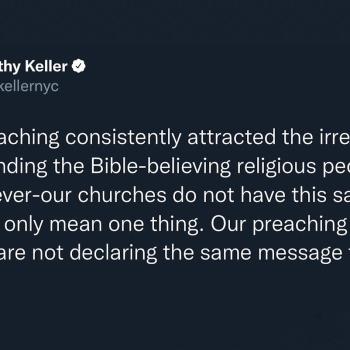I recently set myself to the task of reviewing books once again. Prior to seminary, I had started this practice as a means to both quench my thirst for reading books that far surpassed my means of income, but also, find helpful resources for the church. There are many books written each year from an Evangelical persuasion that are unhelpful, unbiblical, or simply just poorly written. My hope with reviewing books was to be able to wade through these materials for others who have less time, and as a result, don’t wish to waste it on material that won’t be particularly edifying. Fast-forward to full-time seminary, whilst my family was continuing to grow and I continued to work full-time, and this practice was abandoned in favor of retaining my sanity (and grades). However, now that I have graduated and don’t have required reading to do, I wanted to leap headlong back into the process because I truthfully enjoy it and hope to return to a more consistent practice of pointing people towards good resources.
The first review copy I requested this year is a festschrift from B & H Academic titled, God’s Glory Revealed in Christ: Essays on Biblical Theology in Honor of Thomas R. Schreiner. The book itself is broken up into four majors that obviously all pertain to the field of Biblical Theology from various, distinguished authors. The first 5 chapters fall under the framework of how various hermeneutical principles and systems play into one’s understanding of biblical-theological themes. The next six surround major themes and issues in the field of Biblical Theology (i.e. is the book of Hebrews explicitly Trinitarian?). The third major section of the book brings to the forefront various background issues at hand when studying certain books (i.e. is it entirely necessary to reconstruct the background of Colossians in order to comprehend what the theological message of the book is?). The final section of the book then focuses on modern, practical applications of biblical theology (such as Denny Burk’s section on transgenderism).
At first glance one might think this seems somewhat disjointed, especially as they look over the various chapters designated to particular fields within Biblical Theology—yet that is, in a nutshell, what joins them together. These are all various issues at play within our understanding of how a particular theme or topic arises within the Scriptures and gets developed. For example, Robert Yarbrough focuses on the role of the narrative of salvation history, as it relates to various positions biblical-theologians hold. In this, he traces out particular distinctions between those who seek to unfold the text as real history and those who seek to explain it away. In closing, he relates one’s understanding of salvation history to an individual’s understanding of personal piety. In other words: he is highlighting the need to trace the over-arching storyline of Scripture in this grand, metanarrative of God’s history—with a keen eye on drawing attention to the fact that such a study is equally as important as a devotional understanding or pragmatic application, because it unfolds God’s dealings with humanity. Salvation, though an objective reality with objective facts, is something that plays out over a period of time as further revelation is given, and further actions of God take place in space and time.
Another, such as Simone Gathercole, is asking the question: how do the non-canonical Gnostic and Valentinian “gospels” treat the Old Testament, and how does this relate to how the apostles treated the Old Testament? In other words, he is tracing out a historical background in order to demonstrate how some of the ways these “gospels” did treat the Old Testament is tantamount to modern-day, liberal theology, which bases their understanding of the text on personal presuppositions rather than apostolic authority and Divine revelation. Additionally, he draws out in what ways this affects one’s understanding of the Old Testament as it relates to Christ’s life, death, and resurrection to show that this “ditching” of the Old Testament drastically alters one’s understanding of the nature and work of Christ Himself. Yet at the same time, he highlights what can only be stated as various Pagan ideals that crept into these “gospels,” which sets itself in stark contrast to the teaching of the apostles. As we study these things in greater detail, we can begin to understand some of the issues the apostles might have been dealing with in the early church, especially as it relates to a pure conception of Christ and the authority given to those chosen by Him to proclaim the gospel. The really neat thing in this, which isn’t drawn out in the book (but shouldn’t be too much of an issue for the reader to tease out) are the ways this relates to various, heresies and cults present in our own day and age (i.e. Jehovah’s Witnesses and Mormonism).
There are some chapters in the book that are more difficult to interact with if you do not have an understanding of some of the issues they are writing towards, or scholars they are interacting with (I think of D.A. Carson’s chapter in particular). Invariably though, I don’t see this as a large enough issue to detract from reading the book; there are a number of chapters which I found would be worth the price of the book alone. While at times I found myself disagreeing with conclusions of some of the contributors, or perhaps an overstatement of the importance of some particularly nuanced issue, it was nonetheless an enjoyable read. In example, James M. Hamilton Jr. wrote an essay on the importance of the order of the Old Testament books, especially as it relates to Luke 24:44. While he raises some valid criticisms of how the books, as arranged in our current printings might cause readers to miss some inter-textual cues, I am not fully convinced that this proves as large a detriment as he suggests, such that we need to amend how we currently print Bibles so as to match the original ordering. Regardless of one’s convictions here, it presents the reader with the implications of some things one might not normally consider; if we are interested in how biblical themes and teaching are developed as they are revealed, this is an important issue.
At the heart of all of this though is the theme that arises within the festschrift for Dr. Thomas Schreiner: there is a correct way of understanding the text and there are various issues present for us to study diligently in order to do so. As is the nature of Biblical Theology, the interest is in studying how these things developed over the corpus of the Bible’s teaching. In much the same way one’s understanding of the Bible’s teaching as a whole on any particular topic (Systematic Theology) is beneficial, so is understanding how these teachings were progressively revealed and the various background issues at play in their formulation. Overall, I sense this is a festschrift that will provoke much thought in the careful reader as they consider the contributions of the various authors.
It ought to be said thought that due to the nature of the book in applying various categories of biblical-theological themes/issues—this is in many ways an intermediate level book on biblical theology. It wades deeply enough to whet one’s appetite and prompt further study of the particular emphases, and it is quite a useful reference work, but it is by no means an exhaustive treatment of any particular emphasis. However, I regard that as a strength, as it introduces the reader to some issues they might not currently be aware of, or, perhaps they have not fully thought-through some of the implications of a particular understanding of a beloved passage (I think of Ray Van Neste’s thoughtful and delightfully pastoral contribution on Acts. 6:4). I was equally impressed with John Piper’s contribution on sanctification and glorification, which given the recent trend amongst many within the confessionally Reformed camp to accuse Piper of “popery,” ought to serve as an example of just how silly such an accusation is.
While there are many admirable chapters within the book, perhaps it was the final chapter written by Thomas Schreiner’s son that I found the most enjoyable. I steadily gained a new appreciation for a man whose ministry I’ve benefitted from in many ways, but not so much as I did in reading Patrick Schreiner’s reflection on his father’s life and ministry. The reason for this is simple: I am a father with high hopes that my own son would speak so positively of me later in life; that he would see not only a love theology, but for people. Ultimately, my hope is that like Tom’s son, my own son would find a wonderful and harmonious union between orthodoxy and orthopraxy. Though it is the smallest chapter of the festschrift for Dr. Thomas Schreiner, I sense that it will leave the reader with a feeling of a simple fondness for the character of the man due to the small window one gets into his life.
Most remarkably, the sense I gathered was that in spite of his many accolades and academic experience, he is a humble man with an earnest desire to submit himself wholly to the Word of God. One experience I recall was that while preaching through the book of Revelation, Dr. Thomas Schreiner changed his view on the millennium from Amillennialism to Premillennialism, based largely on his exegesis of Rev. 20:1-15 (which is no doubt, a key passage that informs one’s eschatological outlook). While this took many in the Reformed blogosphere aback, the one thing that cannot be said of Dr. Thomas Schreiner is that he is a sloppy exegete, nor that he is so entrenched within a particular system that he is unwilling to reconsider his understanding of the text if an exegesis of it lends itself to such a cause.
It is here then that I give my final commendation of this book. On the whole, there are several chapters that piqued my interest to go deeper—not simply into a particular branch of theology represented in the festschrift, but in my own areas of interest. Any book that leaves the reader hungering for more is, in my estimation, one worth purchasing and reading. Couple this with the glowing words of his friends, colleagues, and son, and I believe any reader will grow in appreciation for the man behind the books. I have always appreciated the work of Thomas Schreiner and as a result of this book in his honor, came away with a new appreciation for the man himself. I would consider it especially worth your time if you have an interest in Biblical Theology, but would also recommend this book to those looking to gain a better understanding of the issues at hand within the field of Biblical Theology. Any way you stretch it, I believe you’ll walk away from the book better for it.
Disclosure: I received this book free from B & H Academic through the media reviewer program. The opinions I have expressed are my own, and I was not required to write a positive review. I am disclosing this in accordance with the Federal Trade Commission’s 16 CFR, Part 255.
If you are interested in reading any other book reviews we have to offer, click here.













